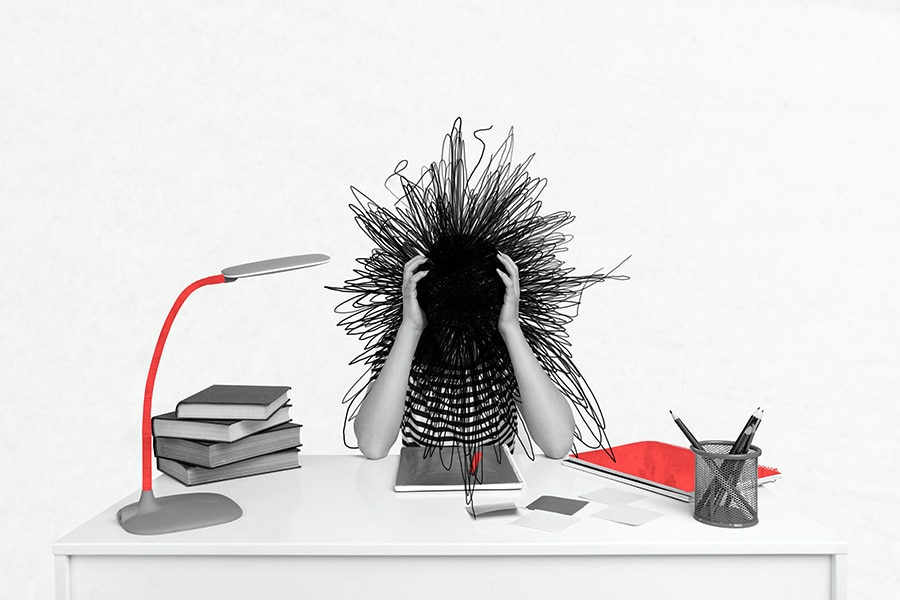Overthinking really can be painful: study
Contrary to the conventional wisdom that intellectual stimulation is always beneficial, this study shows that thinking too much can lead to feelings of stress, frustration and irritation, affecting mental well-being
 Mental effort can damage mental health by causing stress and frustration.
Image: Shutterstock
Mental effort can damage mental health by causing stress and frustration.
Image: Shutterstock
Thoughts race through your mind, a never-ending stream of reflections, and all this overthinking ends up giving you a headache. According to one study, this mental overactivity really can be a source of discomfort and even cause genuine pain.
A study published by the American Psychological Association in the journal Psychological Bulletin reveals that mental effort can be harmful to mental health, particularly at work. Contrary to the conventional wisdom that intellectual stimulation is always beneficial, this study shows that thinking too much can lead to feelings of stress, frustration and irritation, affecting mental well-being.
“Managers often encourage employees, and teachers often encourage students, to exert mental effort. On the surface, this seems to work well: Employees and students do often opt for mentally challenging activities,” explained study senior author Erik Bijleveld, PhD, of Radboud University in the Netherlands, in a release. “From this, you may be tempted to conclude that employees and students tend to enjoy thinking hard. Our results suggest that this conclusion would be false: In general, people really dislike mental effort,” he adds.
Participants in the study came from a variety of backgrounds, including healthcare workers, military personnel, amateur athletes and students, from 29 countries. They were subjected to 358 different cognitive tasks, ranging from learning new technologies to playing virtual reality games. Across all groups, the greater the mental effort, the greater the unpleasantness experienced by the participants according to their reports.
“Our findings show that mental effort feels unpleasant across a wide range of populations and tasks. This is important for professionals, such as engineers and educators, to keep in mind when designing tasks, tools, interfaces, apps, materials or instructions. When people are required to exert substantial mental effort, you need to make sure to support or reward them for their effort,” the study author outlined.
Also read: Mental Health in the Workplace: Why resilience and relevance matter
The study also shows that the adverse feelings that intellectual activity triggered vary from region to region. Asian populations seem less affected than those in Europe or North America, due to increased exposure to intellectual challenges from an early age, making them more resilient.
The key to mitigating the negative sensations that come with mental effort lies in the willingness of individuals to engage voluntarily in demanding tasks, especially if they are associated with rewards.
"Yet, when people choose to pursue mentally effortful activities, this should not be taken as an indication that they enjoy mental effort per se. Perhaps people choose mentally effortful activities despite the effort, not because of it,” concludes Erik Bijleveld.

















